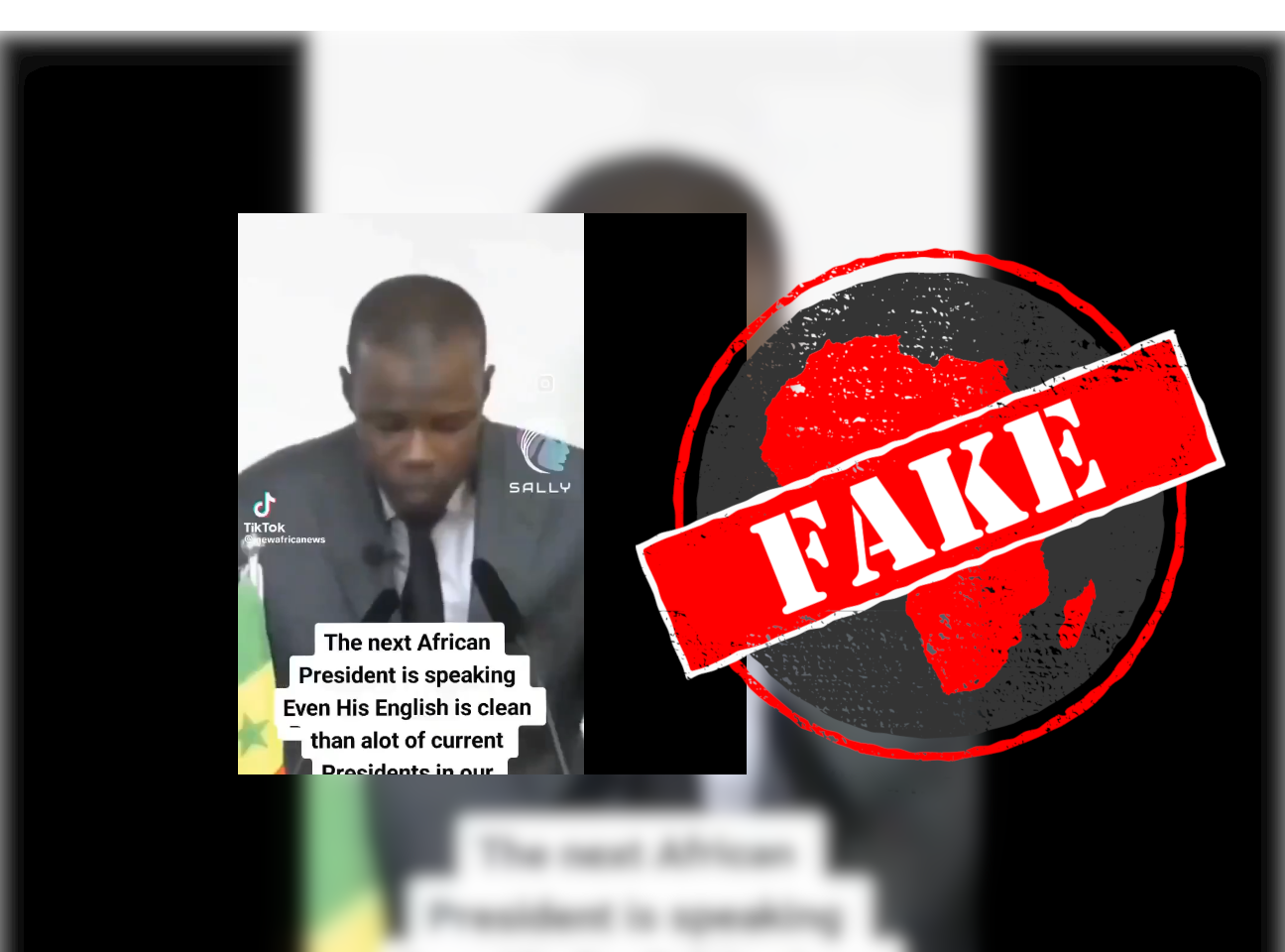A video has gone viral on social media with the claim it shows the newly elected Senegalese president slamming France, speaking in English. But it's been doctored and the man speaking is Ousmane Sonko, not president Bassirou Diomaye Faye.
After a controversial month-long delay, the West African country of Senegal held its presidential election on 24 March 2024.
Two of the 19 presidential candidates – the highest number in the country’s history – led the pack.
One was the ruling Benno Bokk Yaakaar alliance’s Amadou Ba, a former prime minister whom outgoing president Macky Sall had chosen as his successor.
The other was Bassirou Diomaye Faye of the opposition Pastef party. Faye was released from prison just 10 days before the vote. Popular Pastef leader Ousmane Sonko was also released.
Pastef had been dissolved by Senegalese government in 2023 and Sonko was barred from running. So Faye stepped in.
On 25 March 2024, less than 24 hours after voting stations closed, Ba conceded to Faye. Senegal’s electoral commission had announced that Faye had won 53.68% of the 90% of ballots counted.
Faye was inaugurated on 2 April. At 44, he is Senegal’s youngest president yet.
The next day, a video of a man giving a speech in English appeared on social media with the claim that he was Faye. He said: “It’s time for France to leave Senegal alone.”

Senegal is a French-speaking country and was France’s oldest African colony until independence in 1960. The two countries maintain strong political and economic ties, and France has an air force base in Dakar, Senegal’s capital.
The video is overlaid with the text: “The next African President is speaking. Even His English is clean than alot of current Presidents in our Continent.” Its captions identify the man as Faye.
The clip begins with the man saying:
"It is high time for France to lift its knee off our neck and put an end to this unjust oppression. Centuries of misery, human trafficking, colonisation and neocolonisation have caused immeasurable suffering. It is time to put an end to this cycle of oppression. It’s high time for France to leave us alone."
The video can also be seen here, here, here, here, here, here and here.
Faye and his allies have pledged to fight France’s “economic stranglehold” on Senegal. But is the man in the video really Faye, speaking English?
Sonko’s 2021 press conference – in French
Africa Check found that the man in the video is Ousmane Sonko, not Faye. We googled videos using the French keywords “discours d’Ousmane Sonko”. This translates to “speech by Ousmane Sonko”.
This led us to a press conference held by Sonko in Dakar on 2 July 2021. It was streamed live on YouTube by Senegal7, a local TV news channel.
Sonko’s posture and gestures, the suit he is wearing, the white background and the Senegalese flag to his right all indicate that the viral video was taken from the live stream.
In the stream, Sonko gives an hour-and-a-half speech on a range of topics – in French. He posted a transcript of the speech, also in French, on his X (formerly Twitter) account on the same day.
The viral video not only features Sonko, but has been altered, with English audio replacing Sonko's original French.
But Sonko said something similar in his 2021 speech. A machine translation of a part of its transcript reads:
"But it is time for France to lift its knee from our necks and do like its European peers (Germany, Italy, Spain, Great Britain, Sweden, the Netherlands, etc.) who are prospering without sucking the blood of the former colonies."
A six-minute excerpt of the speech was also posted on the Satanal Media YouTube channel, with the headline (in French): “It’s time for France to let go of us.”
But the words were Ousmane Sonko’s words, not Bassirou Diomaye Faye’s.
Republish our content for free
For publishers: what to do if your post is rated false
A fact-checker has rated your Facebook or Instagram post as “false”, “altered”, “partly false” or “missing context”. This could have serious consequences. What do you do?
Click on our guide for the steps you should follow.
Publishers guideAfrica Check teams up with Facebook
Africa Check is a partner in Meta's third-party fact-checking programme to help stop the spread of false information on social media.
The content we rate as “false” will be downgraded on Facebook and Instagram. This means fewer people will see it.
You can also help identify false information on Facebook. This guide explains how.


Add new comment